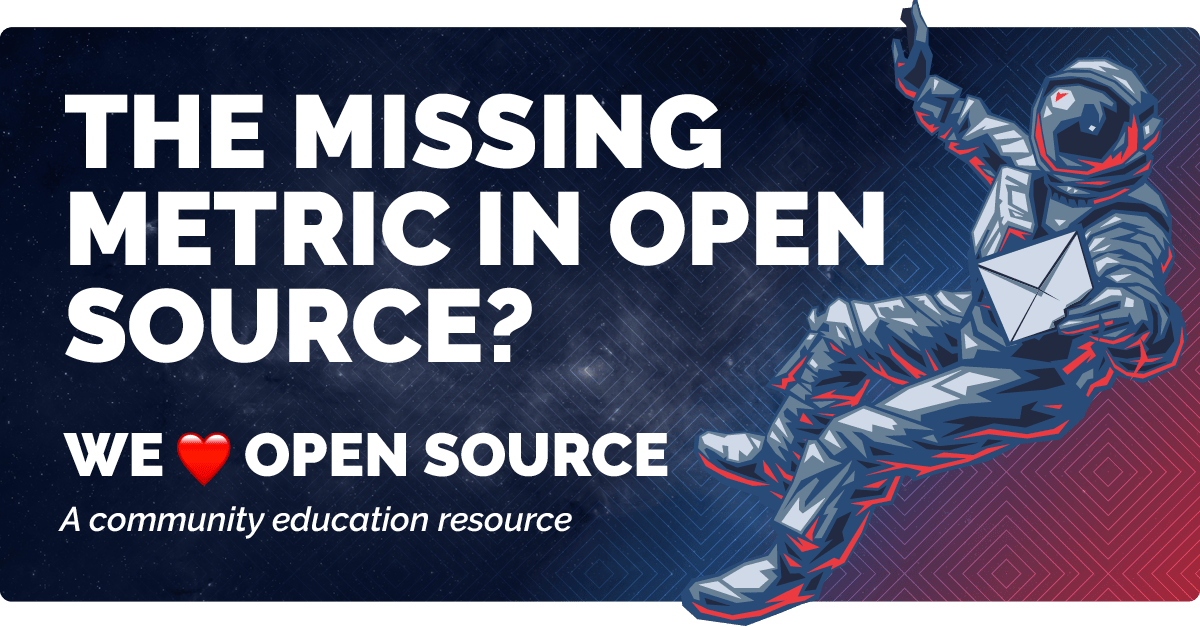- We ❤️ Open Source
- Posts
- The missing metric in open source? Java, Deep Learning, and Columnar Databases
The missing metric in open source? Java, Deep Learning, and Columnar Databases

Welcome to edition #14 of the We ❤️ Open Source newsletter!
Our goal is simple with every publication - to increase your open source IQ and introduce you to the people making open source possible by way of original content created and curated by real humans. 🙂
This week we'll look at…
Building resilient applications: 6 best practices in software architecture
How to get started with Java in 2025: 5 tips to accelerate your programming
Celebrating 20 years of Open Document Format: A milestone for digital freedom
Why Columnar databases and Apache Arrow are essential for modern analytics
Let's get into it!
See you in Atlanta in June? FREE Tickets
We absolutely love events, obviously. And one on our MUST ATTEND list is the amazing Render conference taking place June 11-13 in downtown Atlanta. If you want to attend and join the ATO team, great news! The team at RenderATL is making 100 free complimentary tickets available to the We Love Open Source community. Use code RENDERXATO at checkout and we'll see you there!
In this engaging and educational article, Tapasya Syal identifies and describes 6 essential strategies for creating robust, fault-tolerant systems. WHY WE ❤️ IT: In Tanya's experience, apps need to be resilient, even when things break down. And that's where software architecture comes in. However, resilience is often misunderstood as just “adding retries” or “putting stuff in queues.” But it’s much deeper than that, and this article does a great job of explaining how. |
This article by Ebony Louis takes an in-depth look at deep learning, a lot of the magic behind ChatGPT, DALL·E, and self-driving cars. WHY WE ❤️ IT: This is a follow up to Ebony's last article about Machine Learning, and Deep Learning takes it further. It looks at multiple facets of the topic, including how it works, how it adjusts itself, why it's called "deep learning", and much, much more. |
Luqman Saeed offers a really solid article helping readers to learn Java the right way with smart coding, fast deployment, and scalable enterprise apps. WHY WE ❤️ IT: In its 30th year, Java has shown remarkable resilience and adaptability, making it a great choice to add to your programming arsenal. If you’re looking to start your Java journey in 2025, with a focus on enterprise development, this article offers five practical tips to help you learn efficiently. |
Jen Wike Huger, a dear friend and widely-recognized content expert, gives readers a guided tour of 6 strategies for building trust with developers through content. WHY WE ❤️ IT: Given the volumes of developer-directed content now everywhere, creating quality content that cuts through the noise and is actually received has never been more important. Avoid these mistakes to be more effective and efficient. |
Don Watkins looks at why Open Document Format's 20-year legacy matters in a world of closed platforms. WHY WE ❤️ IT: The Open Document Format (ODF) turns 20 this year, a major milestone for anyone who values open standards, user autonomy, and long-term access to their data. It's become the global standard for office documents in open source and government systems alike, so it's worth knowing something about. |
What's in your technology toolbox?
Let's take a closer look at an open source analytics tool and platform that gives open source maintainers visibility into how their software is being used by providing usage analytics to open source projects, while preserving end-user privacy. *Includes a really good "short" of Scarf Founder and CEO Avi Press that now has 1,000+ views.
Jim Hall, CEO of Hallmentum and open source software developer and advocate, explains what bootstrapping looks like on a floppy-sized operating system. The journey detailed is a demonstration of what you can do with a few simple tools.
From the We ❤️ Open Source Podcast
Zoe Steinkamp, a developer advocate at Clickhouse, sat down with the All Things Open team to discuss the advantages of open source databases, emphasizing their ability to empower communities and offer scalable options. |
Avi Press, founder and CEO of Scarf, helps explain in this enlightening interview how visibility into adoption can help developers align project goals, funding, and community impact. |
Wrap Up
If you've made it this far, be sure to check out the All Things Open website to see everything we do, our YouTube channel with thousands of open source talks, the many meetups we host, and the website for All Things Open 2025, the largest open source / tech / web conference on the U.S. east coast.
We hope you learn something new this weekend!
How did you like the newsletter? |









